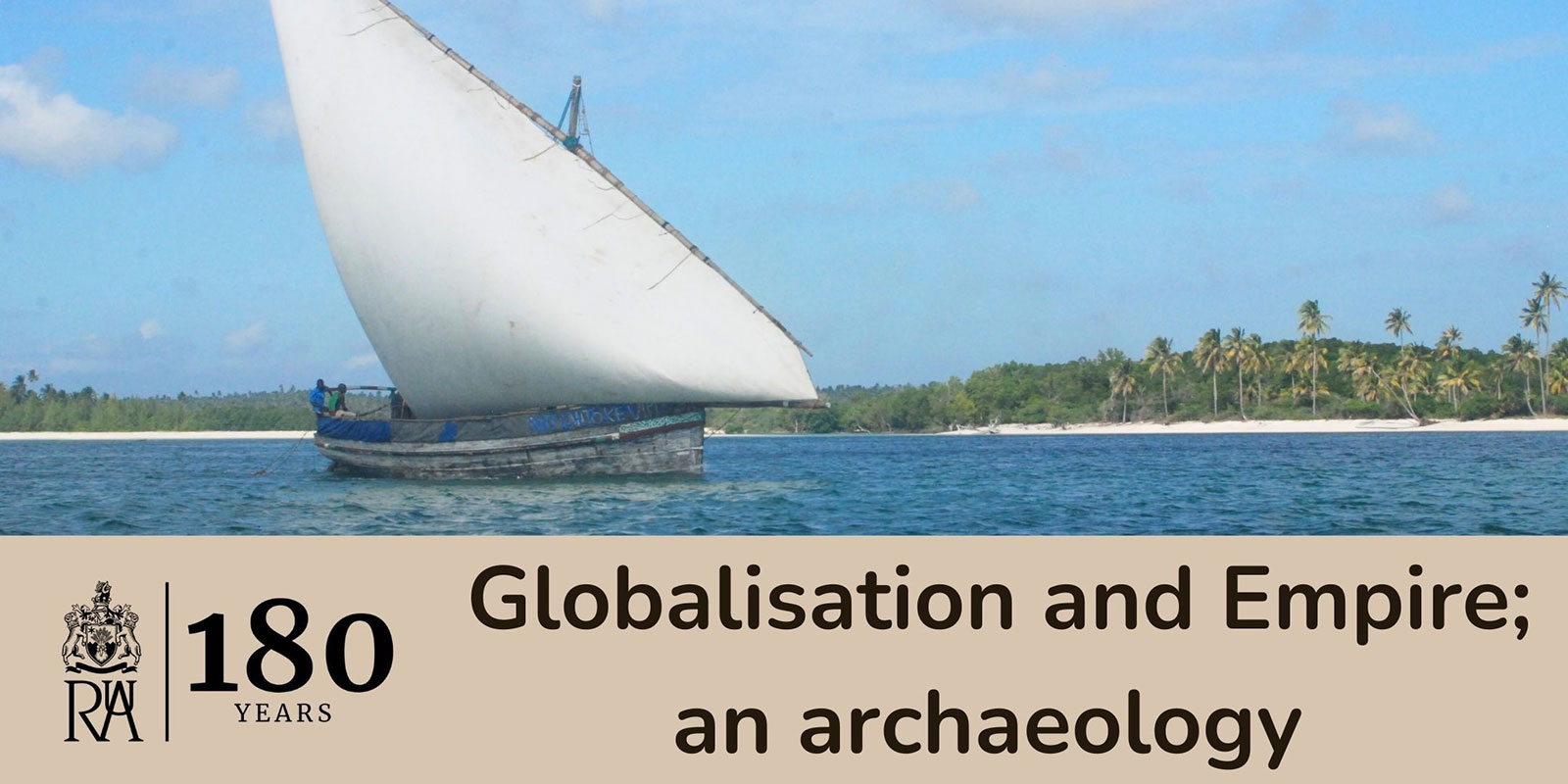Eminent historian and well-known archaeologist deliver free lecture for university’s 180th anniversary

6 June 2025
Two leading figures in the worlds of history and archaeology will take us from the shores of Madagascar, Zanzibar, and Sri Lanka, to the Vikings, Panama, the Caribbean, and Virginia, to help explain why historical archaeology is so important in discovering the origins of the modern world.
Multi-award-winning and bestselling historian William Dalrymple, and well-known British archaeologist Professor Mark Horton, are coming together at the Royal Agricultural University (RAU) next week to deliver the second in a series of six free lectures celebrating the institution’s 180th anniversary.
The lecture, entitled Globalisation and Empire; an archaeology, will discuss Professor Horton's 40 years of archaeological and historical research during which time he has conducted archaeological research in East Africa, the Caribbean, Europe and America.
His research has included investigating the ancient origins of the maritime silk road, how crops and animals were dispersed across Eurasia, and the pioneer colonies established by Europeans during the 16th and 17th centuries.
Professor Horton, who is also Pro Vice-Chancellor, Research & Enterprise, and Director of Research at the RAU, said: “We are going to have a great conversation about how the origins of the modern world were rooted in ancient times, with some amazing new archaeological discoveries.
“William and I have known each other since the early 1980s and, between us, we will be sharing 100 years of research!”
William Dalrymple is a prolific author on Indian history, colonialism, and empire, and his most recent book, The Golden Road, explores the profound influence of India on the ancient world.
He said: “Mark and I will be talking all things empire and imperial! We will discuss the centrality of India in the formation of the ancient world, and how the influence of India spanned not only the Indian Ocean but also China, Central Asia, and south east Asia.”
The free ‘Globalisation and Empire; an archaeology’ lecture, which takes place in the University’s Boutflour Hall at its Cirencester campus, is from 6pm to 8pm on Wednesday 11 June and is open to all. Please visit https://globalisation-and-empire.eventbrite.co.uk to reserve your free tickets.
Originally established in 1845 as the Royal Agricultural College, the first agricultural college in the English-speaking world and with just 25 students, the Royal Agricultural University gained its university status in 2013.
To celebrate its 180th anniversary, the institution - which now has around 1,100 students at its Cirencester campus as well as more than 3,000 studying worldwide with its many international partners - has a calendar of events taking place throughout the year including these special 180th anniversary public lectures, of which this will be the first.
Other events include the unveiling of a new sculpture made especially for the anniversary, and the opening of the University’s new £5.8m land laboratories, as well as a Community Open Day and a global online party for the University to celebrate with its international partners.
Professor Peter McCaffery, who became Vice-Chancellor of the RAU in 2021, said: “As we celebrate our 180th anniversary this year, we can reflect that our University is as relevant today as it always has been.
“Founded in 1845 to help meet a national emergency – how to feed the country at a time of burgeoning urbanisation and industrialisation – we are immensely proud of the contribution our world-wide family of 17,000+ alumni have made as leaders, entrepreneurs and innovators in agriculture and the land-based sector.
“Today we seek to equip a new generation of graduates to help address the global challenges that face us – climate change, food security, sustainable land use, biodiversity loss and heritage management.
“Building on our historic purpose – to care for the land and all who depend on it – we are now driving new frontiers as the leading specialist university in England for research, ‘top-of-the-class’ in our cluster of STEM universities for knowledge exchange, and sponsor of our £140M Innovation Village project to develop sustainable solutions for food production that will be ‘a first for the UK’.
“The RAU is also an exemplar of best practice in Trans-National Education, as recognised by UKRI and the British Council, and, in just the last three years, we have co-founded two brand-new universities – the International Agricultural University in Tashkent, Uzbekistan, and the University of Al Dhaid in Sharjah, UAE.
“Our influence and impact continue to be felt locally, nationally, and globally, and we fully intend to continue to punch above our weight in the future as we have done for the past 180 years.”
For more details of all the RAU’s 180th anniversary events, and to book a place at one of the 180th anniversary free public lectures, please visit https://www.rau.ac.uk/about-rau/why-rau/180-years.